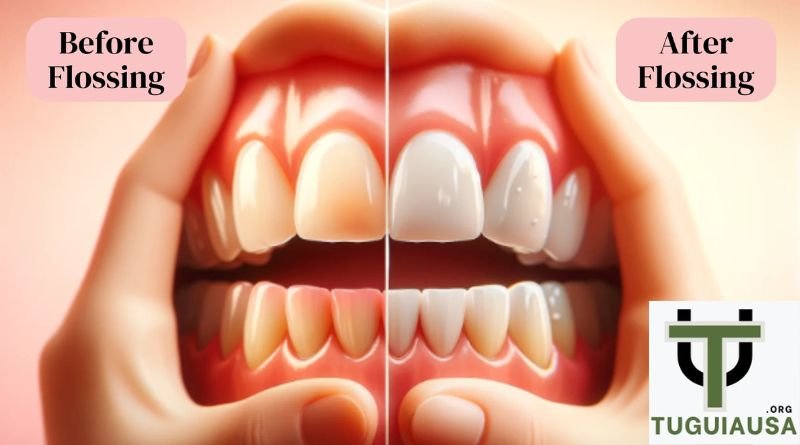Gum health is essential for maintaining overall oral hygiene, yet it is often overlooked by many individuals. In Thomaston, NY, a small but vibrant community, understanding the importance of flossing can make a significant difference in achieving healthy gums. Flossing is one of the simplest yet most effective ways to protect your gums and prevent a variety of dental issues, such as gum disease, plaque buildup, and bad breath. This article will explore the crucial role flossing plays in gum health, especially in the context of Thomaston, NY, and provide practical advice to incorporate this habit into your daily routine.
The Link Between Flossing and Gum Health
Gum health is the foundation of a healthy smile. Poor gum health can lead to several oral health issues, including gingivitis, periodontitis, and tooth loss. One of the best ways to prevent these issues is by flossing regularly. Flossing helps remove food particles and plaque from between the teeth, areas that brushing alone cannot reach. When plaque builds up, it can irritate the gums, leading to inflammation and infection. Over time, untreated gum disease can result in severe dental problems.
Flossing is essential because it directly targets the interdental spaces, which are often neglected during brushing. According to the American Dental Association (ADA), flossing helps reduce the buildup of plaque and tartar, which are responsible for gum disease. By cleaning between the teeth, flossing helps maintain healthy gums, preventing inflammation and potential infection.
Common Gum Health Issues in Thomaston NY
Thomaston, NY, like many other communities, faces a variety of gum health issues. Many residents are at risk of developing gum disease, often due to lifestyle habits, dietary choices, and the absence of proper oral care routines. The two most common gum health issues in Thomaston are gingivitis and periodontitis.
Gingivitis is the earliest stage of gum disease. It is characterized by red, swollen gums that may bleed when brushing or flossing. Gingivitis is typically caused by plaque buildup on the teeth and gums. If left untreated, gingivitis can progress to more serious conditions, such as periodontitis.
Periodontitis occurs when gingivitis progresses to affect the tissues supporting the teeth. This stage of gum disease can lead to gum recession, pockets forming between the teeth and gums, and even tooth loss. Periodontitis is a serious condition that requires professional treatment from a dentist or periodontist.
Fortunately, both gingivitis and periodontitis are preventable with proper oral hygiene practices, such as regular flossing and brushing. In Thomaston, residents can protect their gums by making flossing a regular part of their oral care routine.
How Flossing Protects Your Gums
Flossing is a simple, cost-effective way to keep your gums healthy. The act of flossing removes plaque and food particles that can cause irritation and inflammation in the gums. Here’s how flossing contributes to gum health:
- Prevents Plaque Build-Up: Plaque is a sticky, colorless film that forms on your teeth throughout the day. It contains bacteria that can irritate the gums and lead to gum disease if not removed. Flossing effectively removes plaque from areas that your toothbrush cannot reach, preventing plaque buildup and reducing the risk of gum disease.
- Reduces Inflammation and Bleeding: Swollen, bleeding gums are often signs of gingivitis, the first stage of gum disease. Flossing helps remove the plaque and bacteria that cause gum irritation, reducing inflammation and bleeding. By incorporating flossing into your daily routine, you can keep your gums healthier and free from infection.
- Promotes Gum Regeneration: When gum disease is caught early, the gums have a greater chance of regenerating. Flossing removes harmful bacteria that can cause gum recession, giving your gums the best chance to heal and regenerate. This is why regular flossing is an essential tool for gum health maintenance.
- Prevents Tooth Loss: Gum disease is one of the leading causes of tooth loss in adults. Flossing helps prevent the progression of gum disease, reducing the likelihood of gum recession and tooth loss. By keeping your gums healthy through flossing, you protect your teeth and overall oral health.
Flossing Techniques for Better Gum Health
To get the most benefit from flossing, it’s important to use the correct technique. Many people don’t realize that flossing incorrectly can damage the gums or fail to remove plaque effectively. Follow these simple tips for effective flossing:
- Use a Piece of Floss That Is About 18 Inches Long: This allows you to use a clean section of floss for each tooth and prevents the transfer of bacteria between teeth.
- Wrap the Floss Around Your Fingers: Hold the floss tightly between your fingers, leaving a small gap for maneuvering between your teeth. This gives you more control as you floss.
- Gently Guide the Floss Between Your Teeth: Be gentle when inserting the floss between your teeth to avoid damaging your gums. Avoid snapping the floss into place, as this can cause injury to the gum tissue.
- Form a C-Shape Around Each Tooth: Once the floss is between the teeth, gently curve it around the tooth in a C-shape and move it up and down along the sides of the tooth. This ensures that plaque and debris are thoroughly removed.
- Floss Every Tooth: Be sure to floss every tooth, including the back molars. Neglecting certain areas can result in plaque buildup and missed spots that can lead to gum disease.
- Floss at Least Once a Day: Make flossing a daily habit to maintain optimal gum health. It is best to floss before brushing to remove debris and make brushing more effective.
The Importance of Flossing in Thomaston NY’s Community
In Thomaston, NY, maintaining good oral hygiene is an important part of community well-being. Local dental practices emphasize the importance of flossing to prevent gum disease and maintain overall oral health. Whether you’re a long-time resident or new to the area, it’s crucial to understand the role of flossing in preventing dental problems.
Local dentists and hygienists often recommend flossing as part of a comprehensive oral care routine, which should also include regular check-ups, professional cleanings, and a balanced diet. Thomaston residents are encouraged to visit their dentist regularly to monitor gum health and receive personalized advice on flossing and other oral hygiene practices.
Additional Tips for Maintaining Gum Health
While flossing is one of the most important steps for gum health, it’s also important to follow a well-rounded approach to oral hygiene. Here are some additional tips to help protect your gums:
- Brush Twice a Day: In addition to flossing, brushing your teeth with a fluoride toothpaste twice a day helps remove plaque and bacteria that can cause gum disease.
- Use an Antiseptic Mouthwash: Rinsing with an antiseptic mouthwash can help kill bacteria in the mouth and reduce plaque buildup.
- Eat a Healthy Diet: A balanced diet rich in vitamins and minerals can support gum health. Foods high in vitamin C, such as citrus fruits, can help strengthen gum tissue.
- Quit Smoking: Smoking is a major risk factor for gum disease. If you smoke, quitting can improve your gum health and reduce your risk of developing gum disease.
- Visit Your Dentist Regularly: Regular dental visits are crucial for catching early signs of gum disease and other dental problems. Your dentist can provide professional cleanings and advice tailored to your needs.
Conclusion
Gum health is an essential aspect of oral hygiene, and flossing plays a pivotal role in preventing gum disease and maintaining a healthy smile. For residents of Thomaston, NY, incorporating flossing into your daily routine is a simple yet effective way to protect your gums from inflammation, bleeding, and potential tooth loss. By using the proper flossing techniques and maintaining regular dental check-ups, you can ensure that your gums stay healthy for years to come. Make flossing a habit today and take the first step toward a healthier, more confident smile.
May Also Read: tuguiausa

